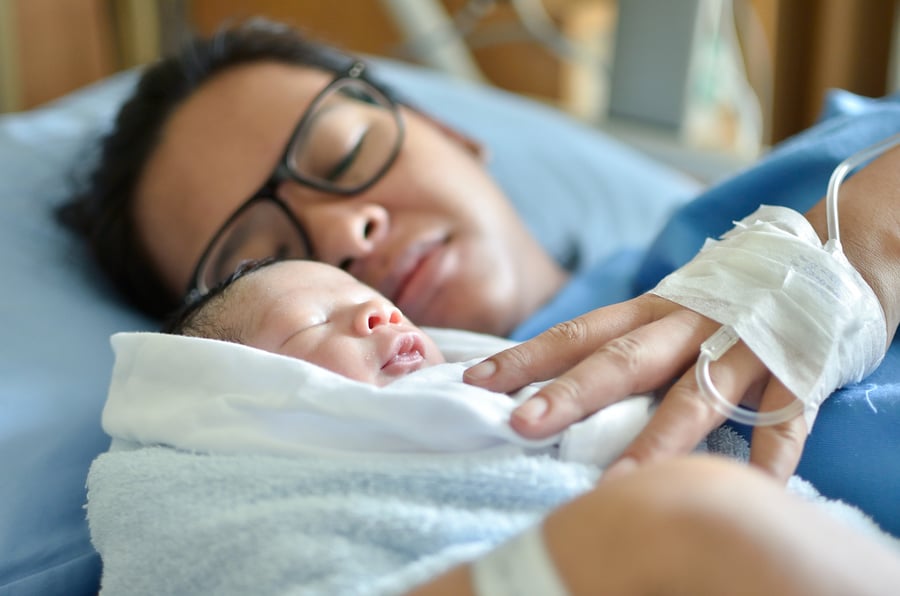Become a “Birthing-Friendly” Facility: The First CMS Maternal Quality Designation

CMS has proposed the first-ever hospital quality designation that specifically focuses on maternal health. If finalized, any hospital positively attesting to the new Maternal Morbidity structural measure in the Inpatient Quality Reporting (IQR) program will receive the designation of a “birthing-friendly” facility. This designation will be publicly reported on Care Compare in the fall of 2023.
How do you qualify?
The Maternal Morbidity structural measure was new to the IQR program in 2022. The initial reporting period was October 1 through December 31, 2021. Hospitals could attest to the measure in May of 2022. The reporting period continues for the entirety of the 2022 calendar year. Hospitals attest to their 2022 performance in May of 2023.
The measure is fairly straightforward. A hospital must attest “yes” to the following statements:
- They are currently participating in a structured state or national Perinatal Quality Improvement (QI) Collaborative; and
- Implementing patient safety practices or bundles as part of these QI initiatives.
CMS has proposed that any hospital who attests “yes” to both statements will receive the “birthing-friendly” hospital designation. Furthermore, CMS will publicly report this designation on Care Compare in the fall of 2023.
This is a great opportunity for your hospital to showcase your perinatal quality initiatives (if you have them) and the official designation would be a great seal to include in your marketing materials.
CMS believes “adding this designation to a consumer-facing CMS website would allow patients and families to choose hospitals that have demonstrated a commitment to improving maternal health through their participation in related perinatal QI collaboratives and their implementation of best practices that support the delivery of high-quality maternity care.”1
Why is CMS doing this?
Well, as usual, CMS does put in a bunch of fancy language as to why they are doing this initiative.
“Hospital participation in QI collaboratives has been shown to be effective in improving the infrastructure surrounding management of obstetric conditions that may lead to severe maternal morbidity or mortality. … Additionally, hospital implementation of related QI efforts has been associated with both enhanced quality and safety of maternity care as well as a reduction in the maternal health disparity gap.”1
Here’s the thing – and I know I’m preaching to the choir here – the U.S. has a maternal health problem. Of course, we all know this, but in the proposed rule they laid out the facts starkly.
- Despite the highest rate of spending on maternity care, maternal mortality rates in the U.S. are among the highest in the developed world.1
- Every year approximately 700 women die of complications related to pregnancy and childbirth.
- Over 25,000 women experience severe complications of pregnancy (severe maternal morbidity).
- Approximately 1/3 of all pregnancy-related deaths occur at the time of delivery and immediately postpartum.
- Nearly 20% of all pregnancy-related deaths occur between day one and day six postpartum.
- Black and American Indian/Alaskan Native women die from pregnancy-related causes at a rate 2-3 times higher regardless of their income or education level.
- Pregnant women who live in rural communities are at higher risk for severe maternal morbidity and about 60% more likely to die before, during, or after delivery than those living in urban settings.1
- Three out of five pregnancy related deaths are considered preventable.1
Yikes. That last one especially gets me.
Other maternal health initiatives
You’ve probably heard some other chatter about maternal health initiatives. The Joint Commission has slowly been bringing all Perinatal Care (PC) measures into the electronic world as alternatives to the historically abstracted versions of the measures. Now CMS is joining in. Again, in the proposed rule, CMS has added two new PC measures to the eCQM list: Cesarean Birth (ePC-02) and Severe Obstetric Complications (ePC-07). Both of these eCQMs are proposed to be required by 2024.
CMS has made a commitment to explore measures that will address the U.S. maternal health crisis in their quality reporting programs. Medisolv’s commitment is to work with clients to extract the data, report it accurately, and provide it for hospitals to use as a resource for quality improvement programs.
Sources
1. https://public-inspection.federalregister.gov/2022-08268.pdf
Medisolv Can HelpAlong with award-winning software, each client receives a dedicated Clinical Quality Advisor that helps you with your technical and clinical needs. We consistently hear from our clients that the biggest differentiator between Medisolv and other vendors is the level of one-of-one support. Especially if you use an EHR vendor right now, you’ll notice a huge difference.
|

.png?width=352&name=2026%20Quality%20Reporting%20Deadlines%20Guide%20(1).png)



Comments